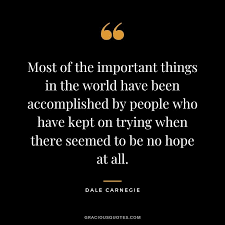Identity in crisis
Last week we presented identity as the set of characteristics that constitutes individual personality. It is influenced by both internal and external factors. Our identity is dynamic, in that it can be influenced by situations and circumstances that surround us. Therefore, our identity is to be carefully guarded and protected. This is especially true when we consider our spiritual identity (Prov. 4:23).
It is difficult to maintain our identity in Christ while living amid the 21st century. Temptations offered by Satan, the influence of worldview, and the weakness of our human flesh, create conditions for a “perfect storm” that can negatively impact our walk of faith. Considering these tests, how can we protect our identity in Christ?
A Change in Identity
Why do people change their identity? Because of change.
Human beings have a complicated relationship with change. While it is both inevitable and essential for growth, change can also be deeply uncomfortable — especially if it feels involuntary, or out of our control.
As researchers focused on social change, we’ve spent the last ten years studying how people react to drastic changes in their lives. We’ve conducted hundreds of interviews with people who lost a desired identity, such as former white-collar professionals forced to move into lower-status careers, as well as with people trying to shed an undesirable or stigmatized identity, such as former prisoners working to reintegrate themselves in their communities.
Interestingly, regardless of whether the changes were ostensibly positive or negative, many of the people we talked to struggled to move on from their past identities and embrace their new selves. This feeling of stuck-ness — a phenomenon we call identity paralysis — often left people feeling angry, frustrated, and hopeless about their current situations.[1]
Changes in identity are normal and to be expected. We live in a world of constant flux. However, it is important to embrace those identity traits that best accomplish the plan and purpose God has for our lives (Jer. 29:11). Why? Because our identity influences how we live our life!
Our Behavior follows our Identity
Behavior and identity are linked. In the Old Testament, God continually warned His people to remember who they were and their covenant relationship with Jehovah (Deut. 6:4-9). God knew that their identification with the wrong things and people would affect their faithfulness. They would be drawn away from the plan and purpose God had for their life (Deut. 8:11). The same is true for us today.
In the New Testament, especially in the writings of the Apostle Paul, the Church in its infancy was continually reminded of their “new identity in Christ” (2 Cor. 5:17). Ministering in countries that didn’t worship God nor honor the teaching of Jesus would be challenging. Their worldview would be very different, just as it is today in the 21st century (1 John 1:7).
Paul’s exceptional testimony of his previous identity as an Orthodox Jew, speaks to the transforming power of Christ to change our identity. It is probably the most thorough testimony in Scripture.
Circumcised when I was eight days old, of the nation of Israel, of the tribe of Benjamin, a Hebrew of Hebrews [an exemplary Hebrew]; as to the [observance of the] Law, a Pharisee; as to my zeal [for Jewish tradition], a persecutor of the church; and as to righteousness [supposed right living] which [my fellow Jews believe] is in the Law, I proved myself blameless. But whatever former things were gains to me [as I thought then], these things [once regarded as advancements in merit] I have come to consider as loss [absolutely worthless] for the sake of Christ [and the purpose which He has given my life]. (Phil. 3: 5-7, Amplified)
Paul’s identity changed his behavior and his life forever. What can we say about Jesus’ entry into our lives and the change it has made in our identity?
Do we know who we are?
Our identity is founded in Christ Jesus. It has been revealed in both His living Word and reflected in His love for us. It is based on a firm foundation that is eternal and abides forever (Ep. 1:4). Jesus has made it possible for us to become partakers of God’s grace and power. Knowing our identity, we can hold firm our “confession of faith without wavering” (Heb. 10:23).
CAUTION: If we as believers are unable to accept the identity God has communicated to us, we need to enter a time of prayer and examination as to why we choose not to believe God (choosing rather to believe the lies of Satan, self, and the world).
[1] “When a Major Life Change Upends Your Sense of Self “, Harvard Business Review.










